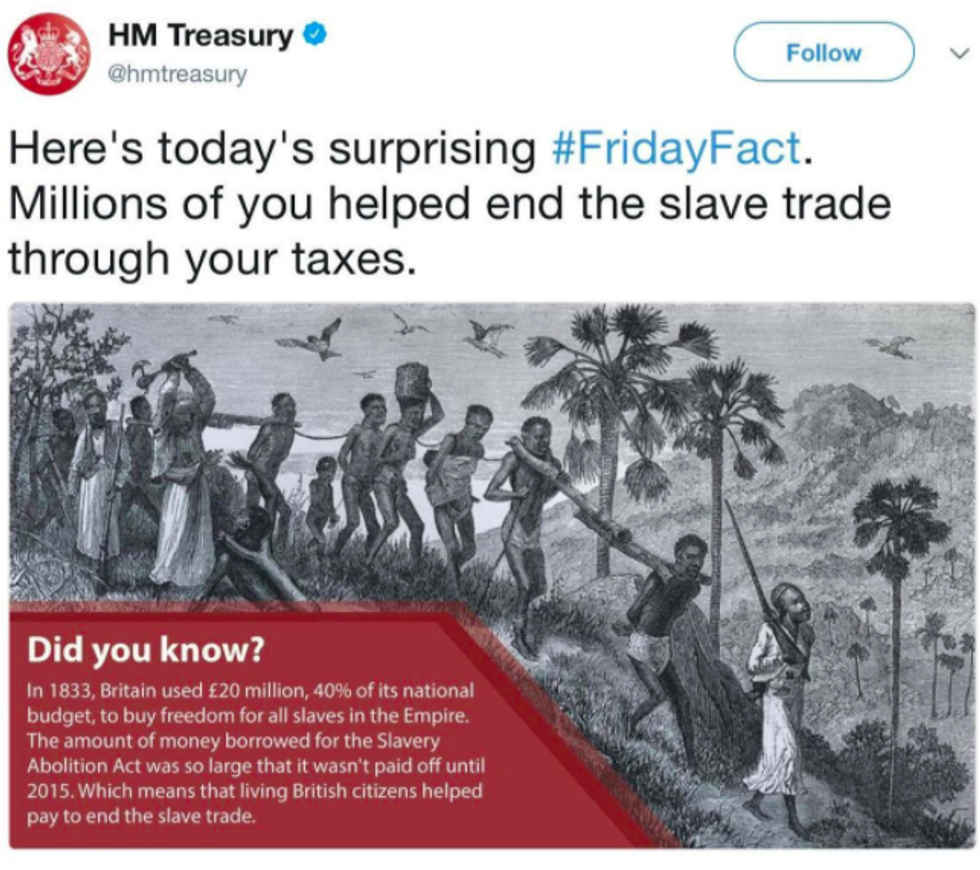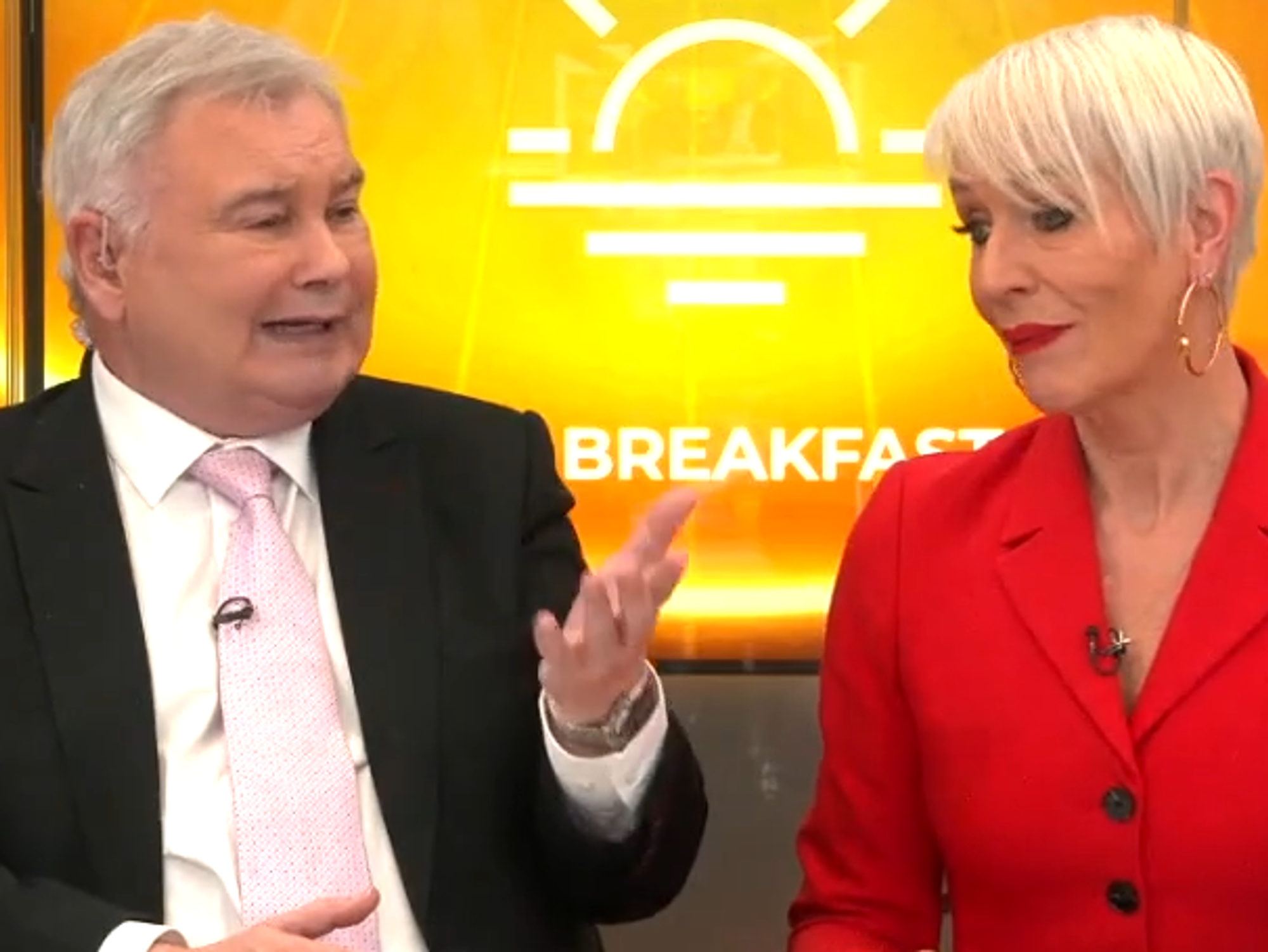UK taxes are hoovered up by slavery debt. HMRC acts like this is something to celebrate, says Nigel Nelson

Nigel Nelson | GB News

'The legacy of slavery, far from being in the distant past, was still with us until only a few years ago'
Don't Miss
Most Read
If you were paying tax eight years ago then guess what? Some of your hard-earned cash HMRC was hoovering up went to repay the loan the British government took out to compensate 19th Century slavers for the loss of their inhumane resources.
Yup, astonishing but true. Although Britain abolished the slave trade in 1807 it took until 1833 to eradicate slavery itself in the Empire. And to do that we had to borrow £20million to provide a slush fund to landowners in the Caribbean for what they considered their lost “property”. The slaves themselves, of course, didn’t get a penny.
This was a gigantic sum back then - roughly £17billion in today’s money, and represented 40 per cent of the Treasury’s annual income or five per cent of GDP. And it took until 2015 to finally pay this debt off.
Sometimes the discovery of a single fact can change one’s point of view. And I’m grateful to the historian Michael Wood for making me aware of this one in his column in next month’s BBC History magazine. It made me rethink what I have been saying on GB News about my opposition to Britain paying reparations to Caribbean countries, despite the pain and suffering British slavers once caused them.

HMRC hastily removed their tweet on the matter
|It has always struck me as wrong to layer modern moral values on historical events when attitudes were completely different. We cannot be held accountable now for what our predecessors did in the past. Otherwise we would be apologising for Henry VIII burning Catholics and his daughter Bloody Mary setting fire to Protestants.
So, when it comes to putting right past wrongs my position has been that we should only consider those within living memory, or within the memory of close relatives still living.
In the 1990s I campaigned for pardons for the 306 British soldiers shot at dawn for cowardice during World War One when they were, in fact, suffering from PTSD. I tackled Armed Forces minister John Reid about this, one of New Labour’s most thoughtful Cabinet ministers, by the way. He initially argued that as post-traumatic stress disorder was unknown back then the British Army was not to blame for what it did. And as arguments go that had some merit.
My counter argument was that as there were still some World War One veterans alive, and many more families around of the loved ones executed, pardons would alleviate some of the residual shame they felt and deliver the retrospective justice they deserved. That eventually won the day and pardons were granted.
I’m not sure the same reasoning would hold water nearly thirty years on as those alive then are dead now. Which is why I have been in favour of resisting demands by 20 countries including Barbados, Jamaica, and Grenada for Britain to compensate them for what happened on their islands 200 years ago, horrible though it was.
But if taxpayers were paying off Britain’s slavery debts as recently as 2015 that position kind of falls down. It means the legacy of slavery, far from being in the distant past, was still with us until only a few years ago.
And we would never have known about it had the Treasury not recklessly tweeted a hastily withdrawn Friday fun fact in February 2018. That said: “Millions of you helped end the slave trade through your taxes.
“The amount of money borrowed for the Slavery Abolition Act was so large that it wasn’t paid off until 2015. Which means that living British citizens helped pay to end the slave trade.”
If the intention was to make us feel better about where our money was going it backfired spectacularly. Today’s “living British citizens” did not find it at all funny that they had been stumping up cash to service a loan which helped make rich slave-owning landowners even richer.
The family of Victorian PM William Ewart Gladstone received £100,000 for freeing the 2,300 men, women and children they had enslaved. That would be worth an estimated £80million today. Even one of David Cameron’s distant relatives was a beneficiary of this questionable largesse.
It is to the credit of the Gladstone family that it has now given £100,000 to the University of Guyana's International Institute for Migration and Diaspora Studies.
The Government has recently apologised for the gay ban in the armed forces which was not overturned until a ruling by the European Court of Human Rights in 2000.
Men and women were drummed out of the Army, Navy and Air Force, or even jailed, for their sexuality. There are thousands now in late middle-age still feeling the effects of that because they lost salary and pension rights as a result.
This makes it a live issue which requires financial compensation to help alleviate their distress and misery. You will not be surprised to know the Government is not too keen on giving it.
As Britain was still taking responsibility for the bribes paid out to slave owners as recently as 2015 that makes it very much a live issue, too.
And I am coming round to the opinion that at the very least those wealthy families who happily snaffled that cash back then should follow the example of the Gladstones and repay it now to the descendants of their victims.










